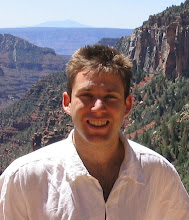
The public release of a series of emails between climate scientists in November of 2009 created a widespread controversy. In and of itself, this is quite fascinating. In our anti-intellectual age, the fact that the correspondence of a small group of nerds became a topic of widespread debate is surprising, to say the least. For several weeks, the personal lives of climate scientists were discussed alongside the vacations, romances, and indiscretions of celebrities. In an unexpected twist, the climate scientists at the University of East Anglia and Paris Hilton suddenly had common ground on which to commiserate.
Climategate, as the scandal became known, provides no end of opportunities to reflect on the interconnections between science and society. Does the fact that scientists are not always nice people influence the ways we understand their knowledge claims? Why has there been so little media attention dedicated to the illegal hacking of private servers? When will society began to recognize more broadly that scientific knowledge production is a messy process and that deviations from the ideals of the scientific method are the norm, rather than the exception?
Here I want to focus on one particular aspect of climate science skepticism more generally: the curious focus by broad groups of people on the epistemological correctness of scientific claims. In most domains, the claims of scientists are largely ignored. When was the last time you overheard people talking heatedly about the protein folding patterns? In climate science, such claims are at the forefront. Why are people so animated about the alleged massaging of statistical data, the accuracy of tree ring evidence, and the soundness of Himalayan glacier melting estimates? Does this represent a sudden uptick of interest in science across broad segments of the public?
I doubt it. Instead, I think it is more useful to understand the debates over climate data as a proxy for deeper questions about the proper role of science in a democratic society.
Science is not simply a method for asking and answering questions about the natural world we live in. Our views about what science should be performed, who should fund it, and what we should do with the results reflect broader notions about what type of world we should live in. When we hear someone ask “how accurate are the models?” we should realize that they may be asking “who has the right to make policy-relevant knowledge?” as well. “Do predictions of glacial melting incorporate the latest findings?” can also mean “what type of local, national, and international governance is appropriate for addressing climate change?”
Let me spell out these distinctions with two hypothetical examples of how a climate scientist and a climate skeptic might approach the role of science in society. According to our imagined climate scientist, the following claims make sense: knowledge should be made by the best and the brightest; policy makers should base their actions on scientific facts; international government agencies are best capable of addressing a problem that is global in scale; society should act aggressively when scientists report risks; governments should impose whatever tax burden on society is deemed necessary to address the risk.
Our hypothetical climate skeptic adheres to a different view of the relationships between science and society: knowledge that can only be created and understood by a few is elitist and therefore untrustworthy; scientific evidence is one among a broad set of criteria for determining policy; actions taken by international governmental agencies may undercut local autonomy and self-rule; a conservative policy agenda will address the wide range of social problems better over time than knee-jerk reactions; the social costs of policies must be weighed against any potential benefits.
Clearly, there are many actors in climate science debates and they hold a wide variety of opinions not captured by this simple schematic. However, the point of this example is to show that how people understand facts is intimately linked to their conception of a good world. In other words, facts are normative. As a result, when we hear debates over the facts, we should be listening for the underlying conversations.
With these thoughts in mind, one of the unfortunate aspects of our current climate debates is that because the discussion is about scientific facts, we are missing chances to have broader discussions about a shared future. While humans have rarely managed to reach consensus about the best ways to live together in the world, such dialogue is all too rare in this day and age. If we were to discuss the relations between science and the state, our commitments to ourselves and future generations, and the best ways to achieve these goals, we might come a lot closer to addressing climate change than by focusing narrowly on the accuracy of scientific facts.
